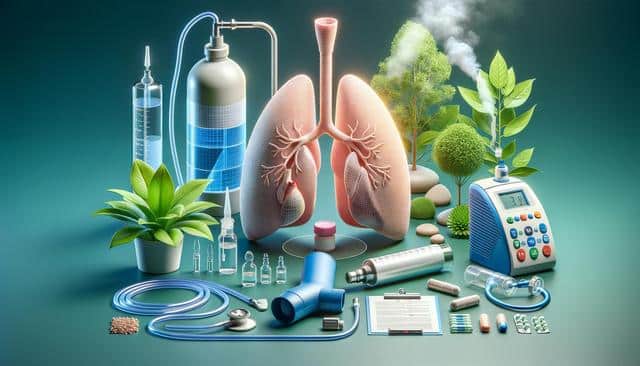
Guide to Emphysema Treatment Options: Managing Symptoms and Improving Breathability
Understanding Emphysema and Its Impact
Emphysema, a form of chronic obstructive pulmonary disease (COPD), primarily affects the lungs, leading to breathing difficulties as it damages the air sacs (alveoli). The condition is progressive, meaning symptoms worsen over time, and it often results from long-term exposure to irritants such as tobacco smoke and air pollution. Understanding the nature of emphysema is crucial for managing its impact on daily life. Individuals with emphysema may experience symptoms like shortness of breath, wheezing, and a persistent cough. Recognizing these symptoms early on can lead to timely intervention, helping to slow the progression of the disease and improve quality of life.
Lifestyle Adjustments to Support Lung Health
Implementing lifestyle changes is a foundational approach to managing emphysema. Quitting smoking is the most crucial step individuals can take, as it reduces further damage to the lungs and enhances the effectiveness of medical treatments. Additionally, regular exercise, tailored to one’s ability, can strengthen respiratory muscles and improve overall fitness. Maintaining a healthy diet rich in antioxidants helps support lung health and boosts the immune system. Staying hydrated is also vital to keep mucus thin and easier to expel. Furthermore, avoiding exposure to lung irritants, such as dust and strong fumes, can minimize exacerbations, making lifestyle adjustments a key component in emphysema management.
Medications for Symptom Management
Pharmacological treatments play a significant role in managing emphysema symptoms. Bronchodilators are commonly prescribed to relax the muscles around the airways, making breathing easier. These can be short-acting for immediate relief or long-acting for ongoing control. Inhaled corticosteroids may also be used to reduce inflammation within the airways. For individuals experiencing frequent exacerbations, a combination of medications might be recommended. Oxygen therapy is another medical intervention for those with low blood oxygen levels. By using supplemental oxygen, patients can improve their energy levels and reduce the risk of complications, emphasizing the importance of tailored medical regimens.
Advanced Therapeutic Options
For those with severe emphysema, advanced treatments might be necessary. Pulmonary rehabilitation programs provide comprehensive support, combining exercise, education, and counseling to enhance lung function and life quality. Surgical interventions such as lung volume reduction surgery or even lung transplants might be considered for eligible patients. These procedures aim to remove damaged lung tissue or replace it entirely, offering significant improvements in breathing. Innovative therapies, like bronchoscopic interventions, are emerging as less invasive options, showcasing the evolving landscape of emphysema treatment and the potential for improved outcomes.
Self-Care and Long-Term Management
Effective long-term management of emphysema requires a proactive approach. Regular monitoring and follow-ups with healthcare providers ensure treatment plans remain effective and are adjusted when necessary. Patients should also focus on self-care strategies, including respiratory exercises, to maintain lung capacity and function. Vaccinations against influenza and pneumonia are advised to prevent respiratory infections. Additionally, support groups and counseling can be invaluable for emotional well-being, providing a sense of community and shared experiences. By focusing on comprehensive care, individuals with emphysema can manage their condition and maintain a fulfilling lifestyle.
Conclusion
Living with emphysema involves navigating a range of treatment options that cater to individual needs. By combining lifestyle changes, medical therapies, and advanced treatments, individuals can effectively manage symptoms and improve their quality of life. Continuous education, regular medical consultations, and a strong support network play crucial roles in the successful management of emphysema, empowering patients to take control of their health journey.